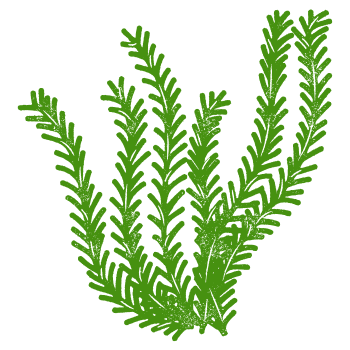Unboxed: 18 algae-based products for all aisles of the store
The tides of “blue food” products are rising, but seaweed, kelp and algae are not limited to just food. Check out this gallery, where New Hope unboxes marine plant-based products across categories with seemingly limitless possibilities.

Walking the halls of Natural Products Expo West, anyone would have noticed a standout ingredient: seaweed. Seaweed, algae, kelp…sea plants were everywhere. The use of seaweed and other marine plant ingredients has been rising for years, and it is exciting to see it appearing in more categories beyond food.
Seaweed, kelp, algae and other marine plants are increasingly used as ingredients in various products due to their nutritional value, sustainability and unique properties. Seaweed is a nutrient-dense food that offers a range of health benefits. It contains vitamins and minerals such as iodine, calcium, iron and magnesium, as well as antioxidants and dietary fiber. In addition, algae has a high omega-3 fatty acid content and can be used as a vegan alternative to gelatin.
 Skincare products use seaweed and algae due to their moisturizing and anti-aging properties. Kelp is also used in hair care products to help promote hair growth and may reduce hair loss. Woods Hole Oceanographic Institution and Western Washington University recently signed a license agreement for Upwell Cosmetics to manufacture and market a marine microalga-derived wax. The wax, derived from algae, will replace petroleum found in many cosmetics.
Skincare products use seaweed and algae due to their moisturizing and anti-aging properties. Kelp is also used in hair care products to help promote hair growth and may reduce hair loss. Woods Hole Oceanographic Institution and Western Washington University recently signed a license agreement for Upwell Cosmetics to manufacture and market a marine microalga-derived wax. The wax, derived from algae, will replace petroleum found in many cosmetics.
In addition to being super ingredients, marine plants are sustainable food sources. Seaweed farming is a sustainable way to produce food because seaweed does not require fertilizers or freshwater to grow. Seaweed can also help reduce traditional farming practices' environmental impact by reducing the need for land and freshwater resources.
Seaweed absorbs carbon dioxide from the atmosphere, making it an effective tool for mitigating climate change. It also provides a habitat for various marine species, which helps increase biodiversity in coastal areas.
Overall, seaweed farming has the potential to provide a sustainable, low-impact food source while offering a range of environmental and economic benefits. Seaweed, kelp, algae and other marine plants are versatile ingredients that CPG brands can use in various products, from food and beverages to cosmetics and supplements. Their nutritional value, sustainability and unique properties make them an attractive alternative to traditional ingredients. Click through the gallery to view new products using marine plants for every aisle.
About the Author
You May Also Like



.jpg?width=700&auto=webp&quality=80&disable=upscale)
